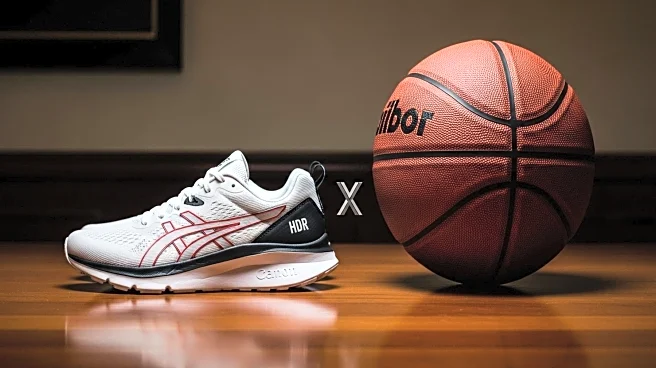What is the story about?
What's Happening?
Dick's Sporting Goods and Foot Locker are set to finalize a $2.4 billion merger following a shareholder vote and regulatory approval. The merger, which is expected to close on September 8, has been overwhelmingly supported by Foot Locker shareholders, with approximately 99% voting in favor. Mary Dillon, CEO of Foot Locker, expressed enthusiasm for the merger, highlighting the potential to expand sneaker culture and enhance the omnichannel experience for customers and brand partners. Despite criticism from U.S. Senator Elizabeth Warren, who raised concerns about reduced competition and potential job losses, the merger is proceeding with plans for Foot Locker to operate as a stand-alone business. The merger aims to strengthen the companies' bargaining position with vendors and address declining sales, as Foot Locker has closed or revamped hundreds of stores in recent years.
Why It's Important?
The merger between Dick's Sporting Goods and Foot Locker is significant for the retail athletic footwear market, potentially reshaping industry dynamics. By combining forces, the companies aim to leverage a stronger bargaining position with vendors, which could lead to improved product offerings and pricing strategies. However, concerns about reduced competition and potential job losses highlight the challenges of such consolidations. The merger could impact consumers through changes in pricing and availability of products, while also influencing employment within the sector. The deal reflects broader trends in retail, where companies seek to adapt to changing consumer preferences and economic pressures by consolidating operations.
What's Next?
Following the merger's completion, Dick's Sporting Goods and Foot Locker will focus on integrating operations and realizing the anticipated benefits of the deal. Foot Locker will continue to operate independently, allowing both companies to maintain their brand identities while collaborating on strategic initiatives. Stakeholders, including employees and customers, will be closely monitoring the merger's impact on store operations and product offerings. Regulatory bodies and industry analysts may also assess the merger's effects on market competition and consumer choice. The companies will likely prioritize enhancing customer experiences and optimizing supply chain efficiencies as they navigate the post-merger landscape.
Beyond the Headlines
The merger raises questions about the long-term implications for the retail industry, particularly regarding competition and consumer choice. As large retailers consolidate, smaller businesses may face increased pressure to compete, potentially leading to further market concentration. Additionally, the merger could influence cultural aspects of sneaker and athletic wear markets, as the companies aim to expand sneaker culture. Ethical considerations regarding employment and community impact may also arise, as stakeholders evaluate the merger's broader effects on society.
















